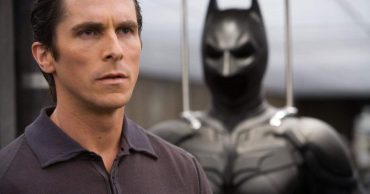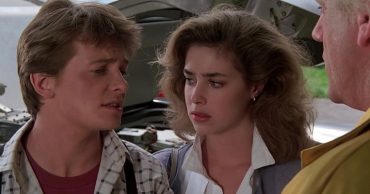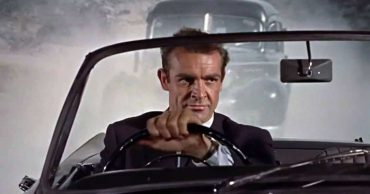2023 was a disastrous year for North American blockbusters. While films like Fast X and Transformers: Rise of the Beasts were saved by international numbers, audiences are growing tired of non-stop blockbusters crowding the film market. In fact, the three biggest films of 2023 are all original content: Barbie, Oppenheimer, and The Super Mario Bros. Movie. The biggest failures that came in 2023 were established brands that had been around for more than a decade.
The entire notion that modern films must be franchised is sound. That’s due to the undeniable success of Kevin Feige and the Marvel Cinematic Universe. Though the brand is going through some hardships right now, the entire MCU brand has collected an astounding $29.6 billion worldwide. That doesn’t even include merchandise, sponsorships, or television properties. The MCU is an extremely lucrative brand and most executives would be foolish to not replicate the model that Marvel set. However, turning major Hollywood films into a “shared universe” is doing more harm than good to the overall genre.
Hollywood Has Forgotten The Purpose Of Ending Stories

Sequels are nothing new. If you go back deeper into Hollywood’s past, there are plenty of blockbusters that have gotten unnecessary sequels: Jaws, Jurassic Park, Speed, Terminator, and Die Hard are just a few. Hollywood is a business first and foremost, but executives need to understand the value of finishing a story. The entire reason that Phases One through Three in the MCU is highly regarded is due to it having a complete beginning, middle, and end.
The journey through the Marvel Cinematic Universe was far from perfect, but most fans would agree that the two-part Avengers saga was an excellent end to a ten-plus-year story. The thing is, not everyone can be Marvel. Filmmaking is hard and what Kevin Feige did was a miracle. Even the current MCU is struggling to replicate that success. Audiences want to feel that their investment in a story is rewarded. You don’t need to make multiple films to achieve that goal.
Did The Hangover need a trilogy? What about Fast and the Furious? Or even Transformers? The mentioned franchises have bombed because fans have caught on to their tired formula and are no longer interested in shelling out money to see something they’ve watched a million times. Not every film has the potential to be like the MCU.
Imagine if executives stopped at Terminator 2: Judgment Day. There was no reason to continue that series because it had the perfect ending. Now, executives have burned millions of dollars on sequels that have yet to come close to the first two films. More importantly, the sequels have burned the goodwill of fans since they understand that the sequels are nothing more than cash cows.
It’s Killing Independent And Mid-Budget Features

Since studios are so focused on remakes, spin-offs, or sequels, it leaves lower-budget films out of the loop. Sure, you’ve gotten successful indie films like Everything Everywhere All At Once, but raunchy comedies are virtually non-existent, along with romantic comedies, small thrillers, or anything that doesn’t have a giant-sized budget. What made the film market so rich before the domination of blockbusters was that there was an attempt to target different demographics.
When it comes to blockbusters, their target is mainstream, so the films tend to be as safe and predictable as possible. It’s stunning that Barbie and Oppenheimer made so much at the box office because these films weren’t made to be mainstream. Despite Barbie appealing to kids, it was a rather adult film with complex themes. Oppenheimer targeted an older male generation and cinephiles; which is missing in most of today’s North American market because studios are afraid to truly push the boundaries with something bold and daring.
Godzilla Minus One proved that you can make a great blockbuster for a low budget. It would ideally make more sense for studios to take this approach, but since Fast X or Mission Impossible has more name recognition than films like The Creator, all they care about is getting to the billion-dollar mark. Hollywood’s business strategy is killing their blockbusters because there’s little risk in the storytelling department in hopes of a big reward.
Blockbusters Feel Like A Cash Cow
![]()
There just doesn’t feel like any love with most modern blockbusters these days. The focus and concern is whether they’ll be able to recoup their gigantic production budget. Of course, it’s a business so that should be a big focus, but so should be quality and originality. It’s a huge reason that the MCU is currently standing on its last legs because it’s clear that Disney and Marvel chose quantity over quality.
I already touched on how blockbusters are made to be safe and predictable to appease the mainstream audience. But that becomes a huge issue when multiple spin-offs or sequels are spawned from said blockbuster. Mission Impossible: Dead Reckoning Part One is a great film, but how many times have we witnessed Ethan fighting a global threat that puts him and his friends in danger?
The focus on making the next billion-dollar film has stripped executives of the prime reasons why movies like Jaws or Jurassic Park became such global phenomenons – because they were risky and original films that demanded to be seen in theaters. Even James Cameron‘s Avatar films have achieved this goal. Trying to milk a franchise dead is coming back to haunt Tinseltown. We need more original films like Oppenheimer or Barbie. Granted, it’s not a guarantee that original films will reach the heights of those two, but it diversifies the market and allows blockbusters to go back to being special attraction films that only come out a few times a year.
 Follow Us
Follow Us





